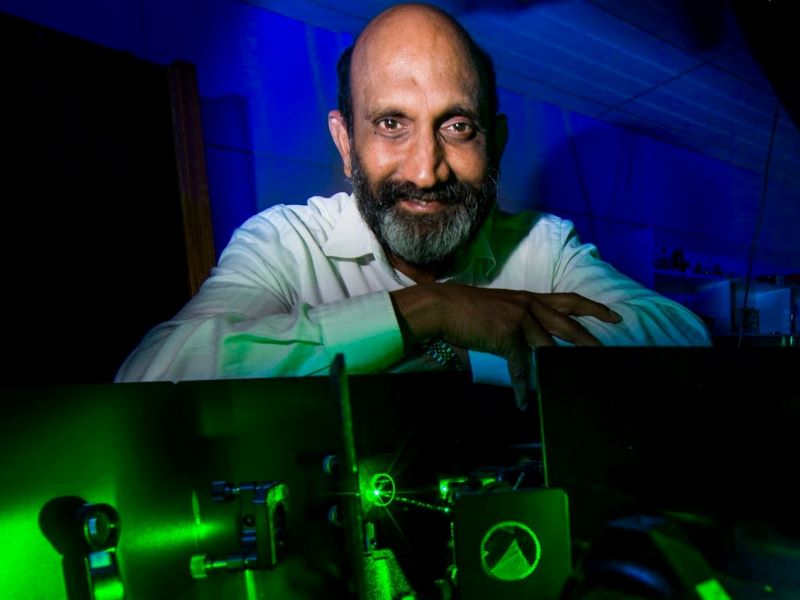The new government must follow its promising talk about supporting science with a review and decade long investment strategy to correct Australia’s slide down global R&D rankings, according to the new president of the Australian Academy of Science Professor Chennupati Jagadish.
Professor Jagadish, a world-renowned physicist whose love for science began in a small village in India, took the leadership role at the near-70-year-old fellowship of the Australia’s best scientists last month.
He works at the cutting edge of nanotechnology developing lasers smaller than a human hair at the ANU, but is now faced with a more fundamental challenge a decade in the making.

Australia’s total expenditure on research and development as a share of GDP is 1.79 per cent, according to the latest available 2019 data. It’s low compared to developed countries, and Professor Jagadish wants Australia to not only return to competitive R&D funding levels but to surpass them.
“If you tell people that in sport you want to be average, people will look at you [like] why do you want to be average? You want to be at the top,” Professor Jagadish told InnovationAus.com.
The top players invest around double what Australia invests in terms of GDP share, with front runners Israel and Korea nearly tripling the mark.
Australia is now well below even the OECD average, the EU and US, all of which have been trending up for a decade. But in that time Australia’s investment in R&D has been falling steadily, and flatlined between 2018 and 2020.
The Australian Academy of Science and other science groups have been pushing for years for the federal government to make a bigger commitment to getting this investment back up.
The government controls key science funding areas for the education and business sectors, like the Research and Development Tax Incentive scheme, competitive and block-based funding for university research, competitive grants and public research organisations like CSIRO.
The previous Coalition government cut billions from business research schemes and focused on commercialising the work that researchers are doing rather than increasing the funding of it.
Labor, which offered bipartisan support on the commercialisation push, has told science groups it will “boost Australia’s investment in research and development as a percentage of GDP, getting it closer to 3 per cent of GDP achieved in other countries”.
New Industry and Science Minister gave his first address to the Science Meets Parliament event last week, thanking scientists and saying the government is going to “fix” various problems plaguing innovation in Australia.
The Australian Academy of Science and Professor Jagadish want the new government to start with a national, whole-of-government review of the science and research system alongside a long-term investment strategy for science.
“Because without that [review] what’s happening is that we are really trying to fix things in a piecemeal way, which really doesn’t help us as a country in the longer term to create a national approach so that we can really secure jobs through the translational of science to industry.”
However, it’s already clear the investment strategy needs to be much longer term, Professor Jagadish said.
“We need to ensure scientists can focus on doing their science rather than worrying about the funding — whether it runs out in two years’ time or three years’ time.”
The Academy is also reiterating its call to have science play a more influential role in policy development. It wants the government to establish a Parliamentary Science Office modelled on the Parliamentary Budget Office.
Established by the Gillard Government, the Budget Office provides costing services to all parliamentarians as well as reports on the implications of major parties’ election commitments.
In a similar fashion, Professor Jagadish says the Science office would provide advice on any aspect of science and contribute to policy development.
“When they are developing policies [the Parliamentary Science Office will contribute] what science is saying about a particular area, whether you’re talking about climate change, or health policy or industry policy.
“Whatever the policy you’re developing now, science has an important role to play. But this office can really make a big difference. And that’s what that’s what happens in other countries,” Professor Jagadish said.
Do you know more? Contact James Riley via Email.

